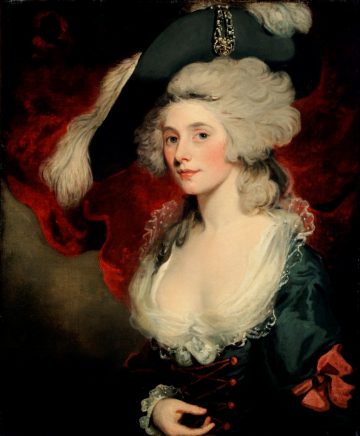

Author: Bristow, Amelia (dates uncertain; fl. 1810-33)
Title: The Maniac, A Tale; or a View of Bethlem Hospital. And the Merits of Women, a Poem from the French: With Poetical Pieces on Various Subjects, Original and Translated.
Date: 1810
Biographical Information
Mrs. Amelia Bristow was born Amelia Solomon on the 19th of July 1783 in London (Orlando Project). In 1810 she published her first work The Maniac, a Tale; or, a View of Bethlem Hospital: and the Merits of Women a Poem from the French, with Poetical Pieces on various Subjects, original and translated. She married a clerk and wrote “for the benefit of the lower classes”(Blain,157). In 1824 she published The Faithful Servant, or The History of Elizabeth Allen, an Evangelical novel she published anonymously. At some point in her life she converted from Christianity to Judaism (Blain,157) and in 1828 she published Emma DeLissau: a narrative of striking vicissitudes, and peculiar trials: with explanatory notes, illustrative of the manners and customs of the Jews, which proved to be quite popular and went through five editions by 1840 (Jackson,38). In 1828 she also published Sophia DeLissau: or, A portraiture of the Jews of the Nineteenth century: being an outline of their religious and domestic habits with explanatory notes. In 1830 she published The orphans of Lissau : and other interesting narratives, immediately connected with Jewish customs, domestic and religious, with explanatory note, a third volume in her "Lissau series." The Lissau series focuses on providing information about the aforementioned “domestic and religious” habits of Polish Jews in England, with a particular focus on women in that group (Blain,157). She followed this series with the release in 1833 of The Scrap Book: Containing a Variety of Articles in Prose and Verse. Chiefly Original (Jackson,38). Her last book was Rosette and Miriam, or, The twin sisters: a Jewish narrative of the eighteenth century which she published in 1837, just two years before the death of her husband sometime around 1839 (19th Century Collections Online). In order to generate income, Bristow sewed until her eyes failed after a string of periodical work and unprofitable novels (Blain,157). She died in Upper Albany Street in London on the 18th of March 1860 from “bronchitis” and “chronic congestion” (Orlando Project).
Sources
Blain, Virginia, Patricia Clements, and Isobel Grundy. The Feminist Companion to Literature in English: Women Writers from the Middle Ages to the Present. New Haven: Yale UP, 1990.
Bristow, Amelia. Mrs. Amelia Bristow B. 1783. n.d. MS Archives of the Royal Literary Fund: Archives of the Royal Literary Fund 596. World Microfilms. Nineteenth Century Collections Online, http://tinyurl.galegroup.com/tinyurl/6PPjh9.
Brown, Susan, Patricia Clements, and Isobel Grundy. “The Orlando Project.” Amelia Bristow © Orlando Project, Cambridge University Press, 2006, orlando.cambridge.org/public/svPeople?person_id=brisam.
Jackson, James Robert DeJager. Romantic Poetry by Women: a Bibliography, 1770-1835. Clarendon Press, 1993.
Prepared by Lia Havlena, University of Nebraska, April 2018
© Lia Havlena, 2018